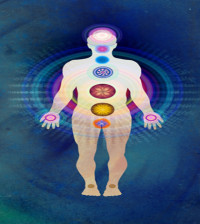- 5 Tips To Finding Peace Within Yourself
- The Do’s and Don’ts of Learning How to Accept Yourself
- How to Find Your Inner Peace and Transform Your Life
- 8 Benefits of Having an Open Mind and How to Get One
- Learn How To Be A Happier Person
- What Is The Meaning Of Life?
- Laws of Abundance – The Riches of Love and Joy
- How to Be Laid Back By Following These 9 Simple Strategies
- The meaning of confucius’ golden rule – 4 practical ways of living it
- 3 methods of unleashing the power of contentment in your life
Understanding the Mind Body Dualism

Philosophically speaking (and mainly because there’s no other substantial way to speak about it), the mind body dualism is a belief or theory that the mind and the body are two distinct, different entities. The implication of this theory is, of course, that the brain and the mind are also two different things, with the mind having its own independent existence that does not depend solely on the brain’s workings. This also has implications concerning the existence of a soul and how our material existence is not all there is to it.
The Material Brain versus the Mind
Those who avidly engage in heated debates concerning the mind body dualism would almost always cite their own set of “evidences.” On one side are the strict materialists: those who stand by their guns in the position that there will be no mental process once the organ that performs such a process (the brain) has become nonfunctional. On the other hand, there are the proponents of the mind body dualism holding that there have been a number of evidences that indicate the mind works despite the damage sustained by the brain. The point is that regardless of what happens to the physical brain, the mind should still be able to function—the person still able to think or have actual thoughts.
Indeed, in rare highly documented cases of people in a vegetative state (a state in which a person has no mental state, like an empty shell), medical researchers found out that subjects responded to external suggestions—there was a case where a doctor told the ‘vegetable’ to imagine herself playing tennis or walking through her own home. The fMRI images obtained as a response to these suggestions indicate that the woman, despite being in a vegetative state, can still “think”—a mental process that should not have been possible given the fact that her brain is no longer functional. Further studies performed on the same woman—comparing the results of a separate study involving normal non-vegetative respondents—found a consistent outcome. The fMRI results showed a difference in how the brain responds to random sounds and to actually understanding spoken words. With the said woman trapped in a vegetative state, the fMRI results showed her brain’s responses as if she understood, which mind-body dualists regard as a strong indication that the mind exists apart from the brain—if the mind relies on the brain solely for thought, then how come the woman whose brain had been severely damaged and nonfunctional could process and even “understand” the spoken words?
Tapping into the subconscious
What makes the mind body dualism much more mysterious and intriguing is how meditation has been shown to work to cause powerful positive changes on the brain and the body. Engaging in regular meditation, as shown in the results of countless studies, can cause a physical improvement in the structure of the brain—in the same way you get your biceps toned when you regularly lift weights, the brain undergoes a dramatic improvement of its neuro-plasticity, as well as in the amount of its gray and white matter. Moreover, there is also a marked increase in the production of certain important “feel-good” hormones, such as GABA, DHEA and melatonin—these neurochemicals are what makes us feel healthy and stress free. And all these from meditation—from spending a few minutes each day performing deep breathing exercises, focusing on your breathing and shutting out everything else.
There is no final word yet on who holds the final truth. As they say, the jury is still out there, figuring it all out. Meanwhile, there’s no harm in respecting the opinion of all the other contenders in this issue and keeping our fingers crossed as we wait for the final word with bated breath.








































You must be logged in to post a comment Login